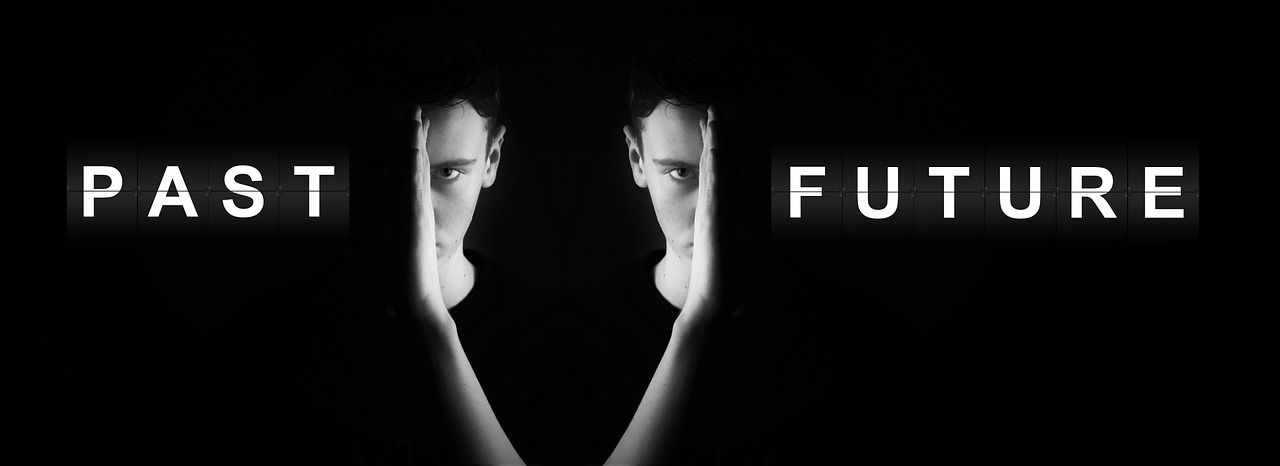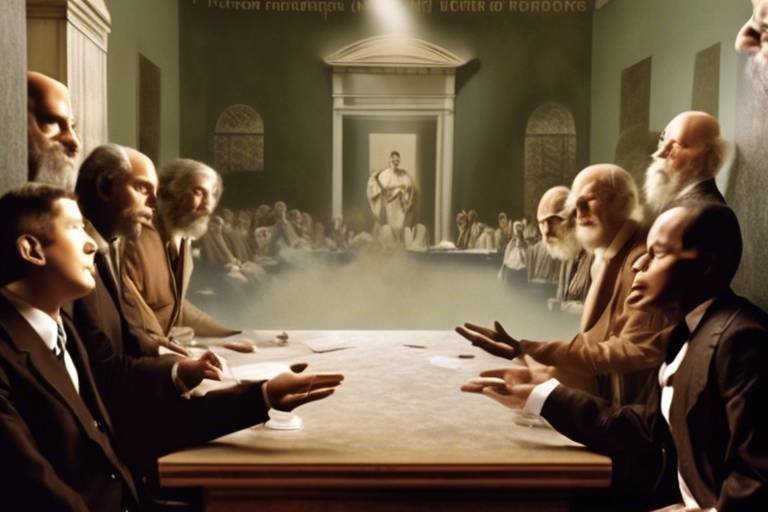How has Ontology Expanded Our Perception of Reality?
Ontology, the philosophical study of being and existence, plays a pivotal role in shaping our understanding of reality. This intricate field invites us to question not just what exists, but the very nature of existence itself. Have you ever pondered why some things feel more 'real' than others? Or why our perceptions can differ so vastly? Through the lens of ontology, we can explore these profound inquiries, leading us to a richer, more nuanced understanding of the world around us.
Historically, ontology has evolved from ancient philosophical inquiries into a contemporary framework that intersects with science and technology. Imagine ontology as a lens through which we view the universe—its evolution reflects changes in our collective consciousness and societal values. As we delve deeper into this exploration, we will uncover how ontology has expanded our perception of reality, revealing layers of meaning that were previously obscured.
One of the most fascinating aspects of ontology is its ability to adapt and respond to new challenges. For instance, in the realm of modern philosophy, thinkers have begun to address questions that arise in light of advancements in science and technology. What does it mean to exist in a world where virtual realities can be created at the click of a button? How does artificial intelligence challenge our traditional notions of consciousness and self? These questions not only reflect the dynamism of ontology but also its relevance in our daily lives.
As we navigate through this article, we will explore several key dimensions of ontology, including its historical roots, its evolution in modern philosophy, and its intersections with scientific and technological advancements. From existentialism's focus on individual meaning to the implications of virtual reality and artificial intelligence, each aspect contributes to a broader understanding of what it means to exist in today's world.
In the sections that follow, we will dissect how ontology not only informs philosophical discourse but also impacts practical realities, shaping how we perceive ourselves and our environment. Buckle up for a journey that promises to challenge your perceptions and expand your understanding of reality!
- What is ontology? - Ontology is a branch of philosophy that studies the nature of being, existence, and reality.
- How does ontology relate to science? - Ontology intersects with science by questioning the nature of existence and the implications of scientific discoveries on our understanding of reality.
- What role does technology play in ontology? - Technology, especially advancements like virtual reality and artificial intelligence, challenges traditional ontological frameworks and prompts new inquiries about existence.
- Why is ontology important? - Ontology is crucial as it helps us understand the foundational aspects of existence, influencing various fields including philosophy, science, and technology.

The Foundations of Ontology
Ontology, at its core, is the philosophical study of being, existence, and reality. Its roots trace back to ancient thinkers who grappled with the fundamental questions of what it means to exist. Imagine standing at the edge of a vast ocean, contemplating not just the water before you, but what lies beneath the surface. This metaphor reflects the essence of ontology—an inquiry that goes beyond the visible to explore the underlying nature of all things.
In the early days of philosophical thought, figures like Plato and Aristotle laid the groundwork for ontological inquiry. Plato, with his theory of Forms, suggested that beyond our tangible world lies a realm of ideal forms—abstract representations of the objects we perceive. This notion prompts us to ponder: is what we see merely a shadow of a greater reality? Aristotle, on the other hand, focused on categorizing existence itself, introducing concepts such as substance and essence. His work established a systematic approach to understanding the world, which would influence countless thinkers for centuries to come.
As we journey through history, we encounter the medieval philosophers who intertwined ontology with theology. Thinkers like Thomas Aquinas sought to reconcile faith with reason, asserting that the existence of God could be understood through ontological principles. This period emphasized the notion of being as a reflection of divine order, suggesting that our reality is a manifestation of a higher power.
Fast forward to the modern era, where ontology took on new dimensions. The Enlightenment ushered in a wave of rationalism and empiricism, challenging previous notions of existence. Philosophers like René Descartes famously declared, “I think, therefore I am,” highlighting the importance of consciousness in the discussion of being. Here, we see a shift: existence is no longer just about the external world but also about the internal experience of the self.
In contemporary discussions, ontology has expanded to encompass various fields, including science and technology. The advent of quantum physics, for instance, has provoked questions about the very nature of reality. Are particles merely waves of possibility until observed? This inquiry aligns with ontological questions about existence and the role of the observer, suggesting that our perception may significantly influence what we deem real.
To summarize the foundational aspects of ontology, consider the following key points:
- Historical Roots: Originating from ancient philosophy, ontology explores existence and reality.
- Key Philosophers: Figures like Plato, Aristotle, and Aquinas shaped early ontological thought.
- Modern Developments: Enlightenment thinkers introduced new perspectives on consciousness and existence.
- Interdisciplinary Influence: Today, ontology intersects with science and technology, prompting fresh inquiries into the nature of reality.
As we delve deeper into the complexities of ontology, we begin to realize that it is not merely an academic pursuit but a fundamental aspect of our human experience. Each philosophical inquiry invites us to question our assumptions, challenge our perceptions, and ultimately expand our understanding of what it means to be.

Ontology in Modern Philosophy
In the realm of contemporary philosophy, ontology has undergone a significant transformation, evolving to tackle a myriad of new questions about existence. This evolution is not merely a shift in terminology; it reflects a deeper exploration of what it means to "be." Influential philosophers have played pivotal roles in this journey, each contributing unique perspectives that challenge and enrich our understanding of reality. Think of ontology as a vast ocean, where each philosopher is a wave, pushing us toward new shores of thought.
One of the most notable shifts in modern ontology is the move away from traditional metaphysical frameworks toward a more nuanced understanding of existence. Philosophers like Martin Heidegger and Jean-Paul Sartre have been at the forefront of this change, emphasizing the significance of human experience and subjective interpretation. They argue that existence is not merely a static state but a dynamic process shaped by our interactions with the world around us. This perspective invites us to consider questions such as:
- What does it mean to exist in a world filled with uncertainty?
- How do our perceptions shape our understanding of reality?
- In what ways does language influence our conception of being?
Moreover, modern ontology is increasingly intertwined with other disciplines, including psychology, sociology, and even quantum physics. This interdisciplinary approach broadens the scope of ontological inquiry, allowing us to examine existence from multiple angles. For instance, the rise of existentialism has prompted philosophers to delve into the complexities of human existence, focusing on themes of freedom, choice, and authenticity. These themes resonate deeply in our contemporary society, where individuals often grapple with the pressures of conformity and the quest for personal meaning.
As we navigate through these modern ontological landscapes, it becomes clear that our understanding of reality is not fixed; rather, it is a tapestry woven from diverse threads of thought. The dialogue between different philosophical traditions enriches our perception, challenging us to reconsider long-held beliefs about existence. This ongoing conversation invites us to embrace uncertainty and complexity, recognizing that our reality is shaped by both our inner experiences and the external world.
In conclusion, the evolution of ontology in modern philosophy reflects a profound shift in how we perceive existence. It pushes us to question the very foundations of reality, urging us to explore the depths of our subjective experiences. As we continue to engage with these philosophical inquiries, we are not just passive observers but active participants in shaping our understanding of what it means to be.
Q: What is ontology?
A: Ontology is the branch of philosophy that studies the nature of being, existence, and reality. It seeks to answer fundamental questions about what entities exist and how they relate to one another.
Q: How has ontology changed in modern philosophy?
A: Modern ontology has evolved to incorporate new perspectives, focusing on human experience, subjectivity, and the interplay between various disciplines, thus broadening our understanding of existence.
Q: Why is existentialism important in ontology?
A: Existentialism emphasizes individual existence, freedom, and meaning, challenging traditional views of being. It highlights the importance of personal experience in shaping our understanding of reality.

Existentialism and Ontology
Existentialism is a philosophical movement that has significantly influenced the realm of ontology, the study of being and existence. At its core, existentialism focuses on the individual's experience and the quest for meaning in a seemingly indifferent universe. This perspective challenges traditional ontological frameworks that often prioritize abstract concepts over the lived experiences of individuals. Instead of viewing existence as a static condition, existentialists argue that it is dynamic and deeply personal, shaped by choices, emotions, and the unique circumstances of each person’s life.
One of the key tenets of existentialism is the idea that “existence precedes essence.” This means that individuals are not born with a predetermined purpose or nature; rather, they create their own essence through actions and decisions. This concept invites us to reflect on our own lives: Are we merely following a script written by society, or are we actively engaging in the creation of our own identities? This fundamental question reshapes our understanding of reality, suggesting that each person has the power to define their existence.
Existentialist thinkers like Jean-Paul Sartre and Simone de Beauvoir have profoundly impacted how we view ontology. Sartre, for instance, emphasized the importance of subjectivity in understanding being. He argued that our perceptions and interpretations of the world are inherently subjective, which means that reality is not a fixed entity but rather a fluid construct shaped by individual experiences. This idea can be likened to viewing the world through a kaleidoscope—each turn reveals a different pattern, representing the diverse interpretations of existence.
Moreover, existentialism encourages a confrontation with the absurdity of life. This notion posits that the universe lacks inherent meaning, and it is up to individuals to forge their own paths. This confrontation can be daunting, yet it also liberates us from the shackles of predetermined destinies. Instead of succumbing to despair, existentialists advocate for embracing our freedom and responsibility, urging us to live authentically. This perspective not only enriches our understanding of existence but also empowers us to shape our own realities.
In summary, existentialism significantly reshapes ontological discussions by emphasizing individual experience, subjectivity, and the active role of choice in defining existence. By challenging traditional notions of being, existentialist thought invites us to explore the depths of our own lives and the broader implications of our existence. As we navigate through life, we are reminded that reality is not merely a backdrop but a canvas upon which we can paint our unique stories.
- What is existentialism? Existentialism is a philosophical movement that emphasizes individual existence, freedom, and the search for meaning in a seemingly indifferent universe.
- How does existentialism relate to ontology? Existentialism reshapes ontological discussions by focusing on personal experience and subjectivity, challenging traditional views of existence.
- Who are key figures in existentialism? Prominent existentialist philosophers include Jean-Paul Sartre, Simone de Beauvoir, and Martin Heidegger.
- What does "existence precedes essence" mean? This phrase suggests that individuals create their own essence through choices and actions, rather than being born with a predetermined purpose.

Heidegger's Contributions
Martin Heidegger, one of the most influential philosophers of the 20th century, revolutionized our understanding of ontology with his profound insights into the nature of being. In his seminal work, Being and Time, published in 1927, Heidegger posed the fundamental question, "What does it mean to be?" This inquiry not only challenges us to think deeply about existence but also encourages a shift in perspective regarding our place in the world.
Heidegger introduced the concept of Dasein, a term he used to describe human existence. Dasein, which translates to "being-there," emphasizes the unique way humans engage with their surroundings and the world. Unlike other entities, Dasein is characterized by its ability to reflect on its own existence and make choices, which brings a dynamic element to ontology. This perspective invites us to consider how our experiences shape our understanding of reality.
Moreover, Heidegger's exploration of time as an essential aspect of being cannot be overlooked. He argued that our understanding of existence is intrinsically linked to our temporal experience. In his view, the past, present, and future are not merely sequential moments but are interwoven, influencing our perception of reality. This idea challenges the traditional, static notions of being and opens up a more fluid understanding of existence, where time plays a crucial role.
Heidegger also delved into the concept of authenticity, which refers to the idea of living in accordance with one's true self, rather than conforming to societal expectations. He believed that many individuals live in a state of inauthenticity, where they are disconnected from their true being. By embracing authenticity, individuals can achieve a deeper understanding of their existence and reality, leading to a more fulfilling life. This notion resonates with many today as we navigate the complexities of modern existence.
In summary, Heidegger's contributions to ontology have significantly shaped contemporary thought. His focus on Dasein, the intertwining of time and being, and the pursuit of authenticity provides a rich framework for understanding our existence. As we continue to explore the implications of his work, we are reminded of the profound questions that lie at the heart of ontology, urging us to reflect on our own lives and the nature of reality.
- What is Dasein in Heidegger's philosophy? Dasein refers to the unique mode of being that characterizes human existence, emphasizing our ability to reflect on our own being and make choices.
- How does Heidegger view time in relation to being? Heidegger sees time as an integral aspect of existence, where the past, present, and future are interconnected and shape our understanding of reality.
- What does authenticity mean in Heidegger's thought? Authenticity involves living in accordance with one's true self, rather than conforming to societal norms, leading to a deeper understanding of one's existence.

Sartre and Subjectivity
Jean-Paul Sartre, a towering figure in existential philosophy, fundamentally reshaped the way we think about subjectivity and existence. His assertion that "existence precedes essence" is not just a catchy phrase; it’s a profound declaration that challenges the very core of how we define ourselves and our place in the universe. In simpler terms, Sartre believed that we are not born with a predetermined purpose or essence; instead, we create our own identities through our choices and actions. This perspective flips the traditional view of existence on its head, urging us to embrace the freedom and responsibility that comes with being an individual.
At the heart of Sartre's philosophy is the idea that subjectivity is central to understanding reality. He posited that our perception of the world is unique to each individual, shaped by personal experiences, emotions, and decisions. This means that no two people can experience reality in exactly the same way. Imagine two friends watching the same movie; while one may see a thrilling adventure, the other might find it dull. This illustrates Sartre's point: reality is not an absolute entity, but rather a tapestry woven from countless subjective perspectives.
Furthermore, Sartre introduced the concept of "bad faith," a form of self-deception where individuals deny their freedom and responsibility by conforming to societal expectations or roles. This denial can lead to a disconnection from one's true self and potential. For instance, consider someone who remains in a job they dislike simply because it is expected of them. In doing so, they may forsake their own desires and aspirations, living inauthentically. Sartre challenges us to confront these moments of bad faith and to recognize that we have the power to change our circumstances, however daunting that may seem.
In Sartre's view, the essence of being human is tied to our ability to make choices. This is where his notion of freedom comes into play. He believed that with freedom comes the weight of responsibility, as we are accountable for our actions and their consequences. This can be both liberating and terrifying; after all, the freedom to choose also means we must face the outcomes of those choices. Sartre’s existentialism urges us to embrace this freedom, encouraging us to create meaning in our lives rather than waiting for it to be handed to us.
Ultimately, Sartre’s exploration of subjectivity invites us to reflect on our own existence. It challenges us to consider questions like: What does it mean to be truly free? How do our choices define us? And how can we navigate a world that often tries to impose its own definitions of reality upon us? By engaging with these questions, we can begin to understand the profound impact of subjectivity on our perception of reality and the importance of living authentically.
- What is Sartre's main contribution to philosophy?
Sartre's main contribution is the idea that existence precedes essence, emphasizing individual freedom and responsibility. - How does Sartre define subjectivity?
Subjectivity, for Sartre, refers to the unique perspectives and experiences that shape an individual's understanding of reality. - What is 'bad faith' in Sartre's philosophy?
Bad faith is a form of self-deception where individuals deny their freedom and responsibility, conforming to societal expectations instead. - Why is freedom significant in Sartre's existentialism?
Freedom is significant because it empowers individuals to make choices and create meaning in their lives, making them responsible for their existence.

Scientific Perspectives on Ontology
When we think about ontology, it often conjures images of deep philosophical debates and abstract concepts, but let’s not forget the role of science in shaping our understanding of reality. Science, with its rigorous methodologies and empirical evidence, has a unique way of influencing ontological discussions. It challenges us to reconsider what we know about existence and pushes the boundaries of our perception. For instance, the advent of quantum mechanics has revolutionized our understanding of particles and waves, leading to questions about the very nature of reality itself. Are we merely observing a predetermined universe, or do we play a role in shaping it through observation? This fundamental inquiry exemplifies how scientific advancements can provoke ontological deliberations.
Moreover, scientific theories often force us to confront the limitations of our traditional ontological frameworks. Take, for example, the concept of time. In classical physics, time was viewed as a linear progression, a constant that could be measured and understood. However, Einstein's theory of relativity introduced a more complex view, suggesting that time is relative and can be affected by speed and gravity. This revelation not only transformed physics but also had profound implications for our understanding of existence. If time is not a fixed entity, what does that mean for our perception of reality? Are past, present, and future merely constructs of our consciousness?
Furthermore, the rise of neuroscience has opened new avenues in ontological discussions, particularly regarding consciousness. As scientists delve deeper into the workings of the brain, they uncover the intricate connections between neural processes and our subjective experiences. This brings forth critical questions: Is consciousness merely a byproduct of brain activity, or does it exist independently? The implications of these inquiries are vast, as they challenge the very essence of what it means to be. In essence, the scientific perspective on ontology not only enriches our understanding of existence but also compels us to reevaluate our beliefs about reality.
To illustrate the interplay between science and ontology, consider the following table that summarizes key scientific advancements and their ontological implications:
| Scientific Advancement | Ontological Implication |
|---|---|
| Quantum Mechanics | Reality may be probabilistic rather than deterministic. |
| Theory of Relativity | Time is not absolute; it is affected by speed and gravity. |
| Neuroscience | Questions the nature of consciousness and its relationship to the brain. |
| Artificial Intelligence | Challenges traditional notions of being and existence. |
In conclusion, the intersection of science and ontology is a dynamic and evolving landscape. As scientific knowledge progresses, it not only enhances our understanding of the universe but also compels us to rethink our ontological beliefs. Each discovery acts as a catalyst, prompting deeper inquiries into the nature of existence and our role within it. So, the next time you ponder the essence of reality, remember that science is not just a tool for measurement; it is a profound influence on our ontological perspectives.
- What is ontology? - Ontology is the philosophical study of the nature of being, existence, and reality.
- How does science influence ontology? - Scientific discoveries challenge traditional beliefs about existence and reality, prompting new ontological inquiries.
- What is the relationship between consciousness and the brain? - This is a key question in both neuroscience and ontology, examining whether consciousness is a product of brain activity or exists independently.
- Can technology change our perception of reality? - Yes, technologies like virtual reality and artificial intelligence can reshape our understanding of existence.

Technology and Ontological Shifts
In today's fast-paced world, technology is not just a tool we use; it has become a fundamental part of our existence, reshaping our understanding of reality in profound ways. As we dive into the intersection of technology and ontology, we discover that innovations like virtual reality (VR) and artificial intelligence (AI) are challenging our traditional frameworks of existence. These technologies are not merely enhancing our experiences; they are redefining what it means to be human and how we perceive the world around us.
Take virtual reality, for instance. When you put on a VR headset, you're not just viewing a different environment; you're stepping into an entirely new realm of existence. This immersive technology allows users to experience scenarios that feel incredibly real, blurring the lines between the physical and the digital. It raises the question: if we can experience a life-like simulation, how do we differentiate between what is 'real' and what is 'virtual'? This phenomenon leads us to rethink our ontological assumptions about reality and existence.
Moreover, the implications of VR extend beyond entertainment. In fields like education and therapy, VR is being used to create simulations that can help individuals confront fears or learn new skills in a controlled environment. For example, a student can explore ancient civilizations or conduct virtual dissections, experiencing history and science in a way that was previously unimaginable. This not only enhances learning but also shifts our perception of knowledge acquisition itself.
On the other hand, artificial intelligence introduces another layer of complexity to our understanding of being. As AI systems become increasingly sophisticated, they raise challenging questions about consciousness, identity, and existence. Can a machine possess consciousness? If an AI can learn, adapt, and even create, does that challenge our definitions of what it means to be 'alive'? As we ponder these questions, we find ourselves grappling with the essence of existence itself.
The relationship between AI and ontology is multifaceted. For instance, consider the following aspects:
- Consciousness: What does it mean to be conscious? Can AI ever achieve a state that resembles human consciousness?
- Identity: As AI systems develop unique personalities and capabilities, how do we define their identity? Are they mere tools, or do they possess a form of existence?
- Ethics: With the rise of AI, ethical considerations come into play. How do we treat entities that may possess a form of consciousness?
As we navigate through these technological advancements, we must also consider their implications on society. The rapid integration of technology into our lives can lead to a disconnect from our traditional understanding of existence. As we become more reliant on virtual interactions and AI-driven experiences, we may find ourselves questioning the authenticity of our relationships and experiences. Are we losing touch with the tangible world in favor of a digital existence?
In summary, technology is not just changing how we interact with the world; it is fundamentally altering our ontological landscape. As we embrace these shifts, it is crucial to remain aware of the philosophical implications they carry. The ongoing dialogue between technology and ontology will undoubtedly shape our future, challenging us to redefine what it means to exist in an increasingly complex world.
- How does virtual reality challenge our perception of reality?
Virtual reality immerses users in lifelike simulations, blurring the lines between the physical and digital worlds, prompting us to reconsider what we define as 'real.' - What are the ethical considerations surrounding artificial intelligence?
As AI systems grow more sophisticated, questions arise about their rights, consciousness, and the ethical implications of their integration into society. - Can technology lead to a disconnect from reality?
Yes, an over-reliance on technology may cause individuals to lose touch with tangible experiences, leading to a questioning of the authenticity of their interactions.

Virtual Reality's Impact
Virtual reality (VR) is not just a buzzword; it's a revolutionary technology that has the potential to reshape our understanding of existence and reality itself. Imagine slipping on a headset and being transported to a completely different world—one where the rules of the physical universe seem to bend and twist. This immersive experience challenges our traditional notions of what is real and what is merely a figment of our imagination. As we dive deeper into the realms of virtual reality, we must ask ourselves: How does this technology alter our perception of reality?
One of the most significant impacts of VR is its ability to create experiences that are indistinguishable from reality. Users can interact with virtual environments in ways that feel incredibly authentic. For example, VR can simulate everything from walking on the moon to exploring ancient civilizations. This level of immersion raises profound questions about the nature of reality and existence. Are these virtual experiences any less real than our everyday lives? If we can feel, see, and interact within a virtual space, does that not imply a new layer of reality?
Moreover, VR has practical applications that extend beyond entertainment. In fields like education, therapy, and training, VR offers unique opportunities to engage with content in a hands-on manner. Consider the following:
- Education: Students can take virtual field trips to historical sites, enhancing their learning experience.
- Therapy: VR is being used in exposure therapy for phobias, allowing patients to confront their fears in a controlled environment.
- Training: Surgeons can practice complex procedures in a virtual setting, honing their skills without risk to real patients.
This blend of reality and virtuality prompts us to reconsider our definitions of existence. If we can learn, heal, and grow within a virtual space, does that mean our experiences there are just as valid as those in the physical world? Philosophers and scientists alike are grappling with these questions, as they delve into the implications of VR on our understanding of consciousness and being.
Furthermore, the social aspect of VR cannot be overlooked. As people connect in virtual spaces, they forge relationships that transcend geographical boundaries. This new form of social interaction can lead to a sense of community that feels just as real as face-to-face connections. However, it also raises concerns about the authenticity of these relationships and whether they can replace traditional forms of human interaction.
As we continue to explore the impact of virtual reality, it is crucial to engage in ongoing discussions about its implications. The lines between reality and virtuality are becoming increasingly blurred, prompting us to rethink our understanding of existence itself. Are we merely observers in a world governed by physical laws, or are we active participants in a reality that can be shaped by technology? The answers to these questions may redefine our perception of what it means to be human in the digital age.
Q1: What is virtual reality (VR)?
A1: Virtual reality is a simulated experience that can be similar to or completely different from the real world. It uses technology to create immersive environments that users can interact with.
Q2: How does VR affect our perception of reality?
A2: VR challenges traditional notions of reality by creating experiences that feel real, prompting us to question the boundaries between the physical world and virtual environments.
Q3: What are some applications of VR beyond gaming?
A3: VR is used in various fields, including education, therapy, and training, allowing users to engage in hands-on experiences that enhance learning and skill development.
Q4: Can virtual relationships be as meaningful as real-life ones?
A4: While virtual relationships can foster community and connection, the authenticity and depth of these relationships can vary, and they may not fully replace traditional face-to-face interactions.

AI and the Nature of Being
As we plunge deeper into the realm of artificial intelligence, we find ourselves grappling with some of the most profound questions about existence and consciousness. What does it mean to be? Can a machine possess a form of being, or is it merely a sophisticated tool designed to mimic human behavior? These questions are not just philosophical musings; they are at the heart of ongoing debates in both the tech and philosophical communities.
One of the most intriguing aspects of AI is its ability to learn and adapt. Unlike traditional machines, which follow predetermined instructions, AI systems can evolve based on their experiences. This adaptability raises the question: if an AI can learn and make decisions, does it possess a form of consciousness? Some argue that consciousness requires more than just the ability to process information; it demands subjectivity, the capacity to experience feelings and sensations. Yet, others suggest that as AI becomes increasingly sophisticated, our definitions of consciousness and being may need to evolve.
To illustrate this point, consider the Turing Test, proposed by Alan Turing in 1950. This test evaluates a machine's ability to exhibit intelligent behavior indistinguishable from that of a human. If an AI passes this test, do we then attribute it a form of existence? Or is it simply a reflection of our own understanding of intelligence? The implications are staggering, as they challenge our traditional views of what it means to be alive and aware.
Moreover, AI's role in our lives is expanding rapidly. From virtual assistants like Siri and Alexa to complex algorithms driving autonomous vehicles, AI's integration into our daily routines blurs the lines between human and machine. As we interact with these technologies, we may begin to question our own nature. Are we becoming more like machines, or are machines becoming more like us? This reciprocal relationship raises essential ontological inquiries.
In addition, AI's potential for creativity further complicates the discourse. Can a machine create art, music, or literature that resonates with human emotions? If so, does this creative output signify a level of being that we must reconsider? As AI-generated works gain recognition, we are prompted to reflect on the essence of creativity itself. Is it a uniquely human trait, or can it be replicated by algorithms? This ongoing dialogue between AI and human creativity challenges our understanding of existence and the nature of being.
As we navigate these uncharted waters, it becomes clear that AI is not just reshaping our technological landscape; it is also transforming our philosophical frameworks. The questions posed by AI compel us to re-examine our beliefs about consciousness, existence, and the very fabric of reality. We stand at a crossroads, where the definitions of being and existence are not just academic discussions but vital inquiries that could redefine our future.
- What is the Turing Test? The Turing Test is a measure of a machine's ability to exhibit intelligent behavior equivalent to, or indistinguishable from, that of a human.
- Can AI possess consciousness? This is a debated topic; some argue that consciousness requires subjective experience, which AI currently lacks.
- How does AI challenge our understanding of creativity? AI's ability to generate art and music prompts questions about the nature of creativity and whether it is a uniquely human trait.
- What implications does AI have on our perception of reality? AI blurs the lines between human and machine, prompting us to rethink our definitions of existence and being.
Frequently Asked Questions
- What is ontology?
Ontology is the philosophical study of the nature of being, existence, and reality. It seeks to understand what entities exist and how they can be categorized and related within a framework of understanding. Think of it as the foundation of our understanding of everything that is!
- How has ontology evolved over time?
Ontology has evolved significantly from its ancient philosophical roots to modern interpretations. Initially focused on existence itself, it now incorporates insights from various fields, including science and technology, reshaping our understanding of reality in the process.
- What role do existentialist thinkers play in ontology?
Existentialist thinkers like Martin Heidegger and Jean-Paul Sartre have profoundly influenced ontological discussions. They emphasize individual existence and the subjective experience of reality, challenging traditional notions and inviting deeper exploration of what it means to be.
- How does science intersect with ontology?
The intersection of science and ontology provides fresh insights into the nature of reality. Scientific advancements, such as quantum physics, have prompted philosophers to reconsider traditional ontological categories and explore new dimensions of existence.
- What impact does technology have on our perception of reality?
Technological innovations, particularly virtual reality (VR) and artificial intelligence (AI), are reshaping our understanding of existence. VR creates immersive experiences that can alter our perception, while AI raises questions about consciousness and what it means to exist.
- Can virtual reality change our understanding of being?
Absolutely! Virtual reality immerses users in alternate realities, challenging their perceptions and experiences of what is real. This technology prompts us to rethink the boundaries between the virtual and the actual, expanding our ontological horizons.
- What questions does AI raise regarding ontology?
AI challenges traditional views of consciousness and existence by prompting us to consider whether machines can possess awareness or subjective experiences. This leads to profound ontological inquiries about the nature of being and the criteria for what it means to truly exist.


















